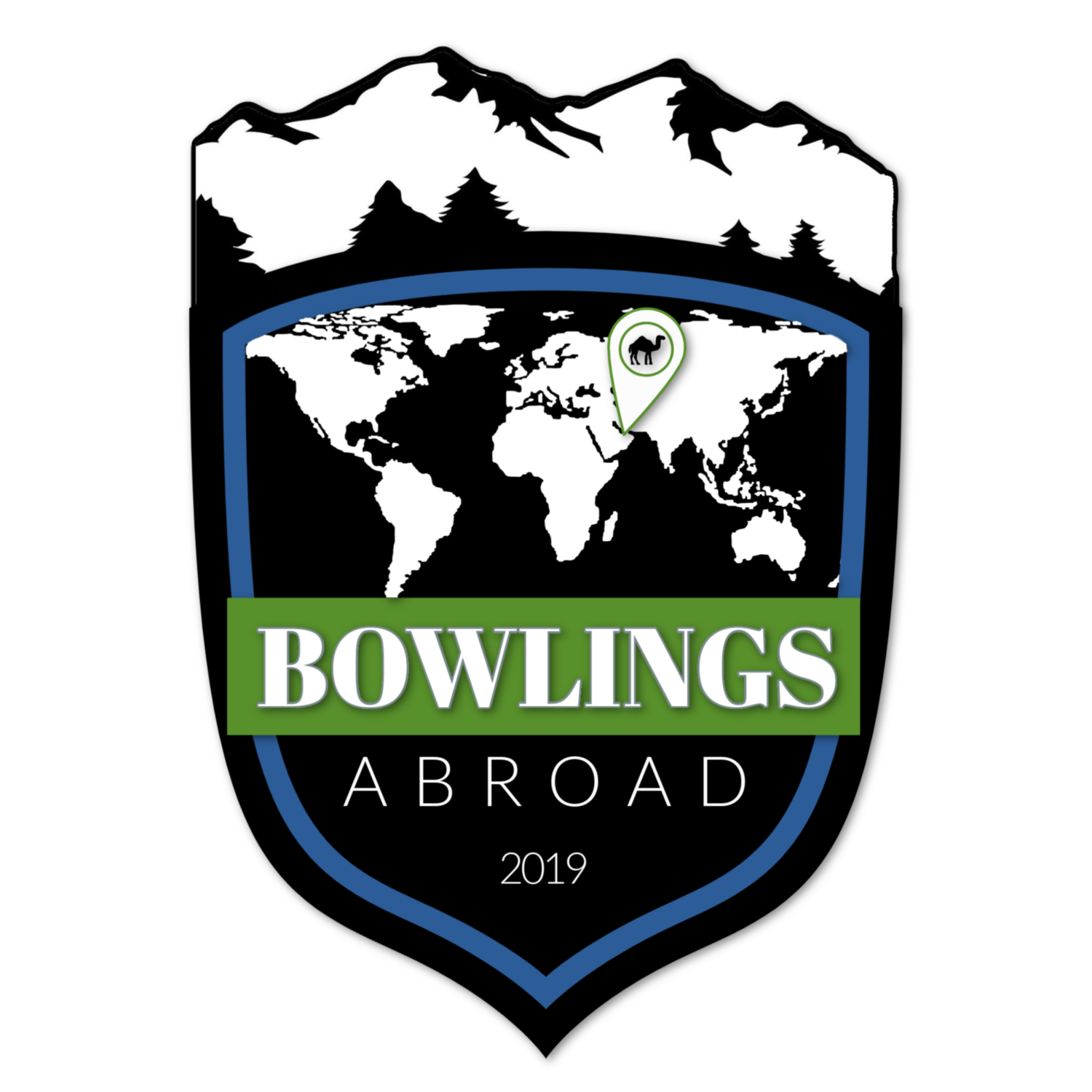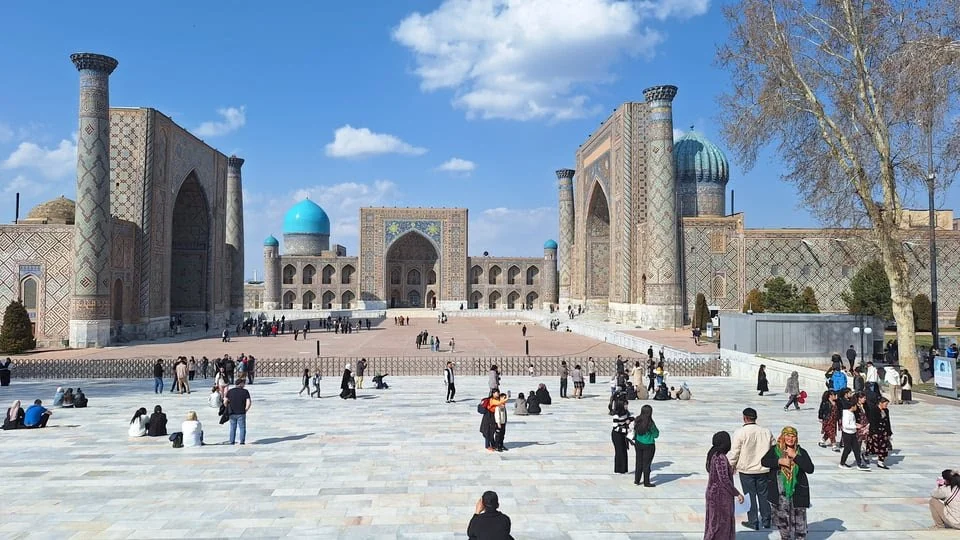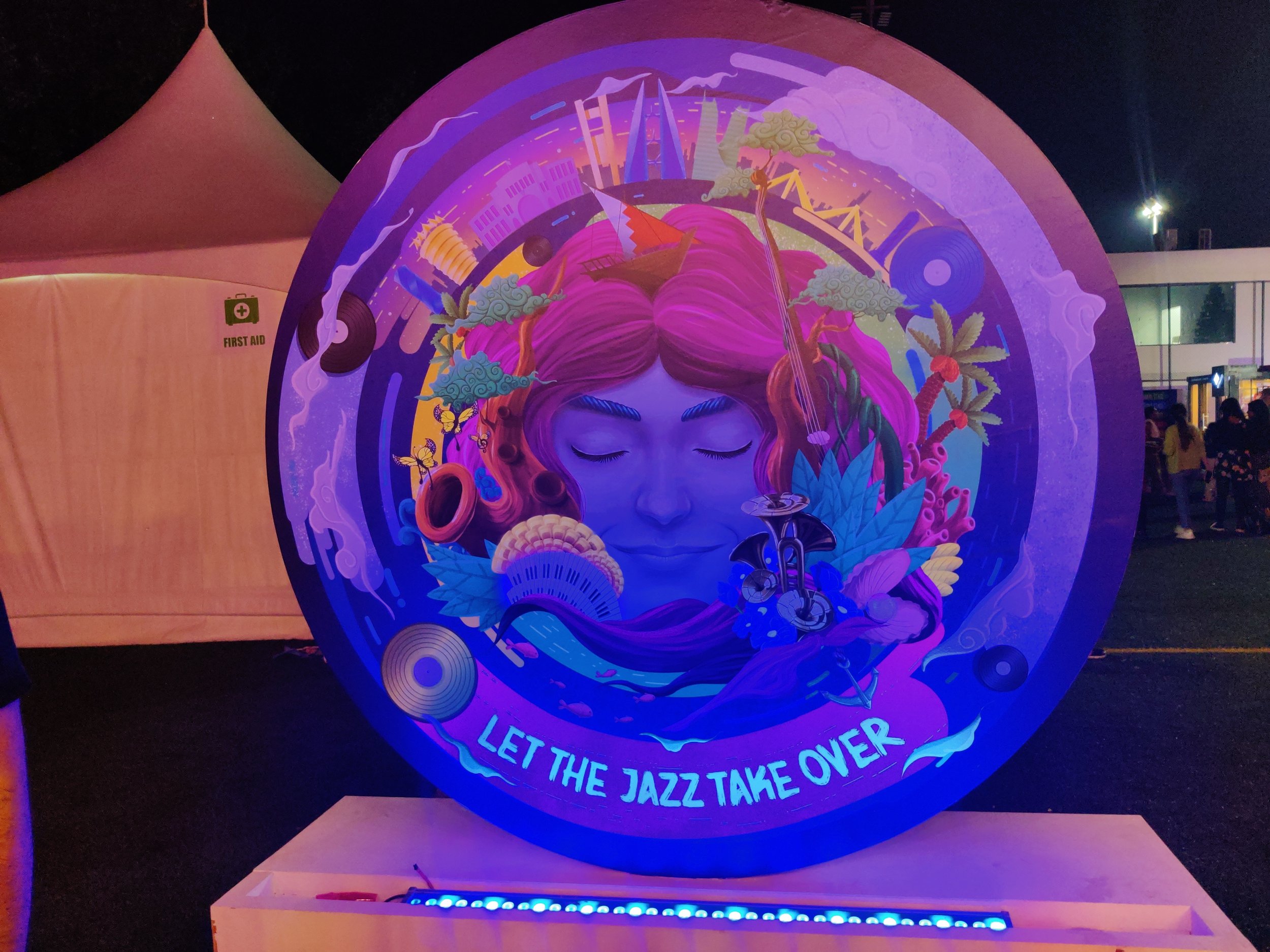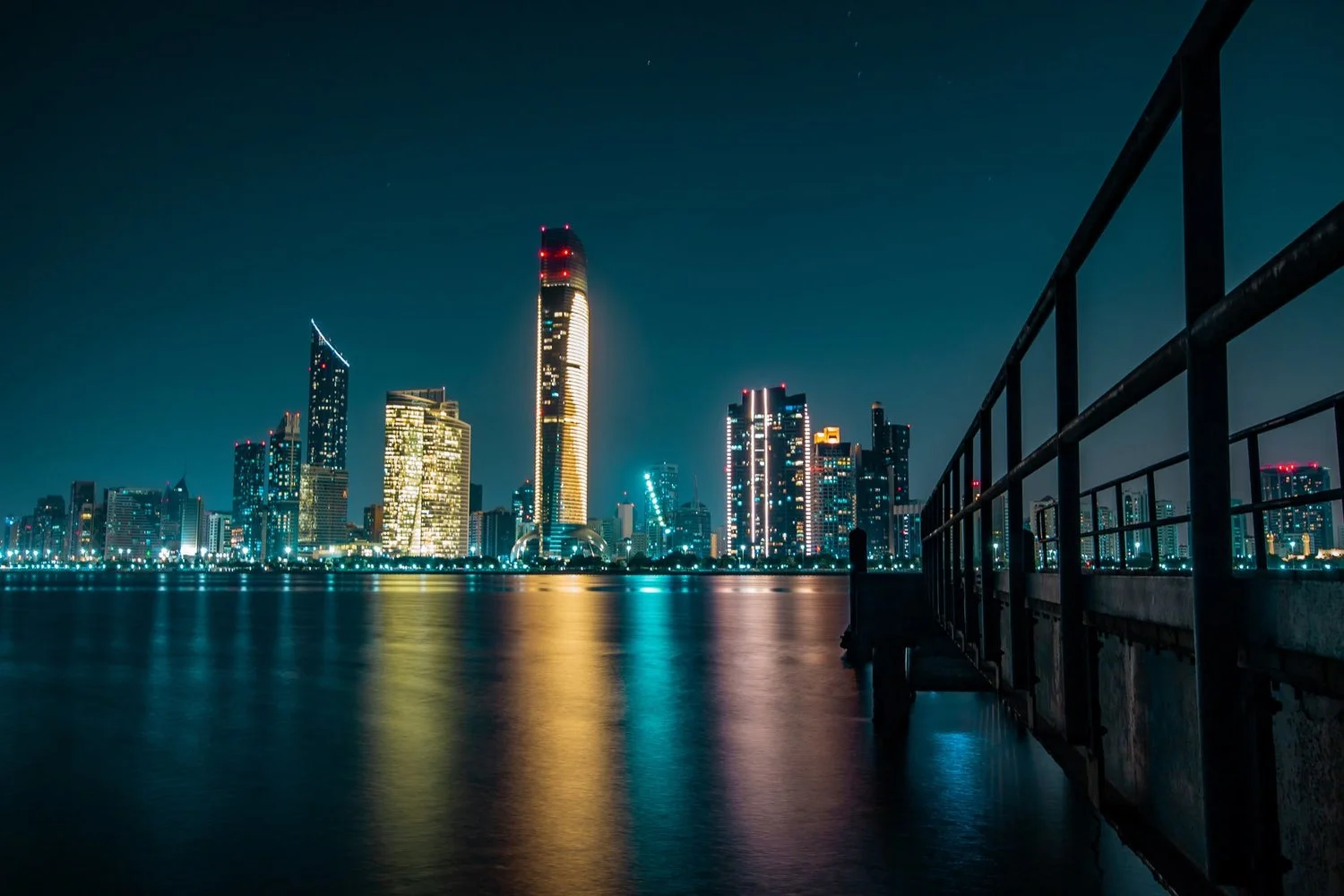Traveling Through History In Uzbekistan
Originally posted in Nate’s weekly newsletter Takes and Typos on March 17, 2024
The Republic of Uzbekistan was born in August 1991. It was one of the 15 states that emerged from the fall of the USSR. Uzbekistan is landlocked, jammed among its Central Asian neighbors: Kazakhstan to the north and west, Hermit-ish Turkmenistan and Afghanistan to the South, and Kyrgyzstan and Tajikistan to the East. In recent decades the country has leveraged its natural gas and mineral wealth to modernize its infrastructure and cities.
Manti, Uzbek style dumplings
Like the rest of its Central Asian cohort, the country is geographically and politically situated between Russia and China and resides in the spheres of each state. We noted this repeatedly in our travels. When we took the train from Tashkent to Samarkand, we rode along rails laid during the Soviet era but on a high-speed train car, manufactured in China. The metros in Tashkent are built in the ornate Soviet style that Tucker Carlson recently gushed over in Moscow. One of the two national dishes is manti, a dumpling dish that arrived in the country from China along the Silk Road.
Upon arriving in Tashkent we found the capital busy, clean, and notably quiet. I’d say 60% of the women wear hijab but more in Samarkand than Tashkent. Uzbeks are very reserved people. They don’t smile much; they don’t chatter much in public. They greet each other quietly with a handshake and a meeting of the forehead. I joked to a friend this week that "full metro cars and weekend markets in Tashkent were quieter than three Jordanian dudes having lunch."
The Gūr-i Amīr mausoleum of the Turco, a Turkic Conqueror
Like Azerbaijan, which we’ve previously visited, the leader of Uzbekistan during the Soviet era, Islam Karimov, became the president after independence and ruled until his death in 2016. The country began to open itself to tourists in 2018. We saw other travelers in both Tashkent and Samarkand, but most of them appear to be Russian or Kazakh.
The historical sites in Uzbekistan are incredible. We toured mosques and madrasahs that date back to the 1400s and visited ruins the result of the Mongol conquest in the 1200s.
From what we could tell, Uzbeks don't really have a cafe or bar scene. This makes sense given the cold climate and conservative culture. On a few occasions, we walked towards busy-looking streets expecting to find restaurants or cafes and came up empty-handed. But the food we had was wonderful. Uzbek food is hearty, which again makes sense given the winters. The other national dish, plov, is a rice dish with stewed meat and vegetables—a Central Asian paella or biryani. It is also notable that people in Uzbekistan are decidedly tea, rather than coffee people. This was great for me because I don't particularly like coffee. I typically only drink the occasional espresso when I'm traveling. But I love tea and drank it at every opportunity possible.
Plov, an absolute banger of a rice dish
In preparing for our trip, I came across several videos calling Uzbekistan the “cheapest country in the world.” I thought these were tacky and felt a touch exploitative. That said, if you are budget-sensitive, traveling to Uzbekistan is affordable. The US dollar trades at 1:12,500 Uzbeks Soms. Most of the meals we had were in the neighborhood of 150,000 soms, so under $12 for two. The best meal we had, manti, plov, and tea service, at an understated cafe in Samarkand, was eight bones.
Tashkent very much has a Soviet feel. On a couple of occasions, we found ourselves taking multi-block detours to get around government ministry compounds. There are police everywhere. In our prior travels in post-Soviet states, we have found a vibrant nightlife and restaurant scene around Freedom or Independence Square. Not so much this trip. In Tashkent, Independence Square is in the middle of a quiet park.
Independence Square in Tashkent
In closing, let's talk about traveling while Black for a moment. Racism is real and not everywhere is safe for everyone to travel. I am not saying I am the first Black person to ever go to Uzbekistan but I didn't see any other brothers and sisters, and many of the people I encountered acted like I was the first Black person they'd ever seen in real life.
In a phenomenon I have not experienced since going to Beijing, in 2014, I was repeatedly asked by people to pose for photos. I obliged the first few. Hope overheard someone practicing saying “Welcome to Uzbekistan” in English before approaching us. As we walked through the Registan, I heard a couple of people yell “Hey, New York!” and wave.
That said, The people were very chill. I felt no hostility toward me. If you are a Black traveler you shouldn't have unusual safety concerns in Uzbekistan.
On the whole, this was a great little adventure. The people of Uzbekistan are welcoming. The food is solid to great. The history is unavoidable and compelling–it’s literally in your face everywhere you go. When I was a kid in geography class, Pyongyang, Tashkent, and Harare were the most exotic sounding places on Earth to me. It’s really cool that I got to visit one of them.
Mahna Mahna...Manama
The Kingdom of Bahrain is an unassuming island nation just across the water from Saudi Arabia.
Originally supposed to be one of the then nine United Arab Emirates, Bahrain (along with Qatar) dipped out three days before the signing of the documents and decided to declare themselves independent!
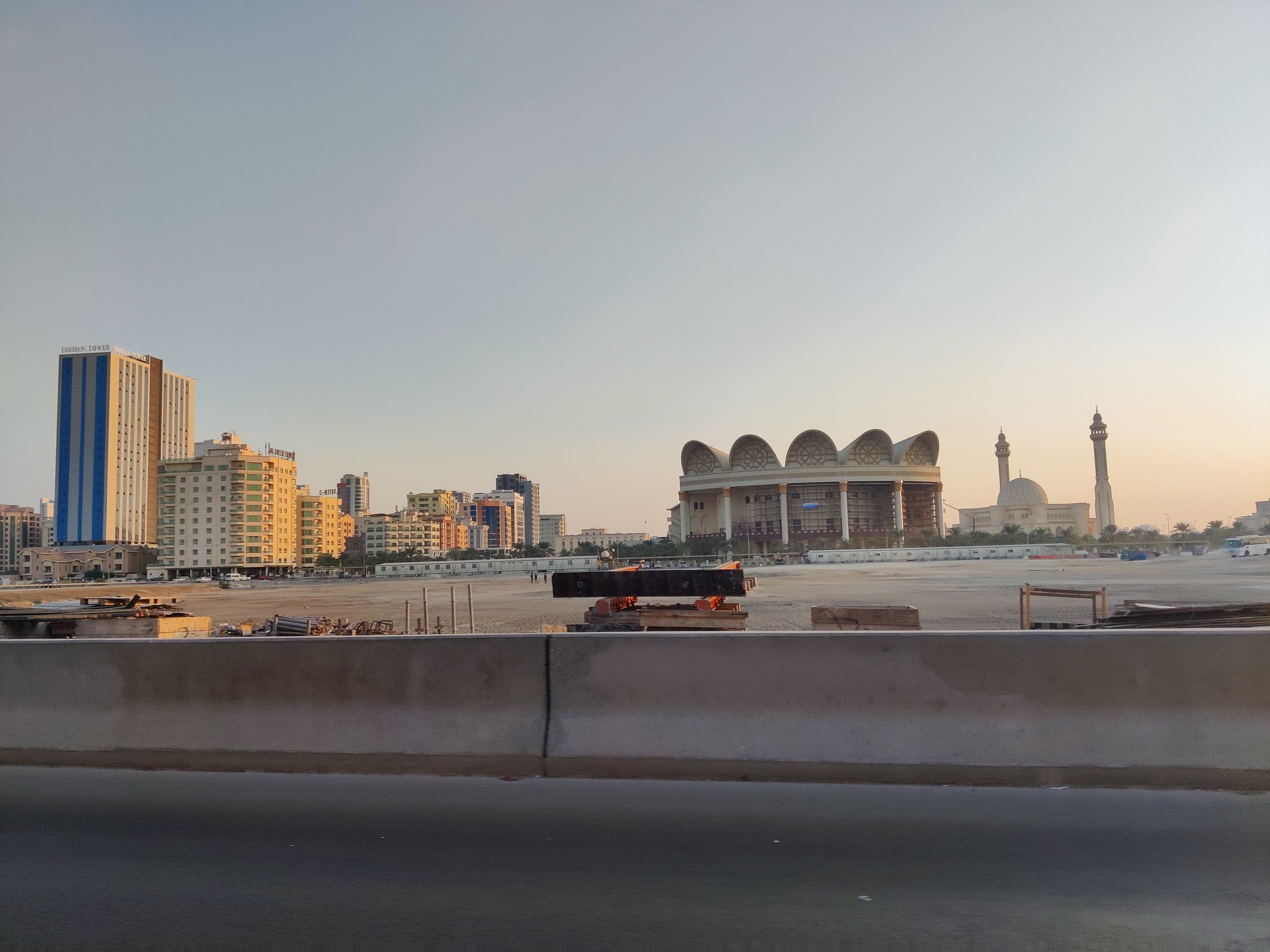
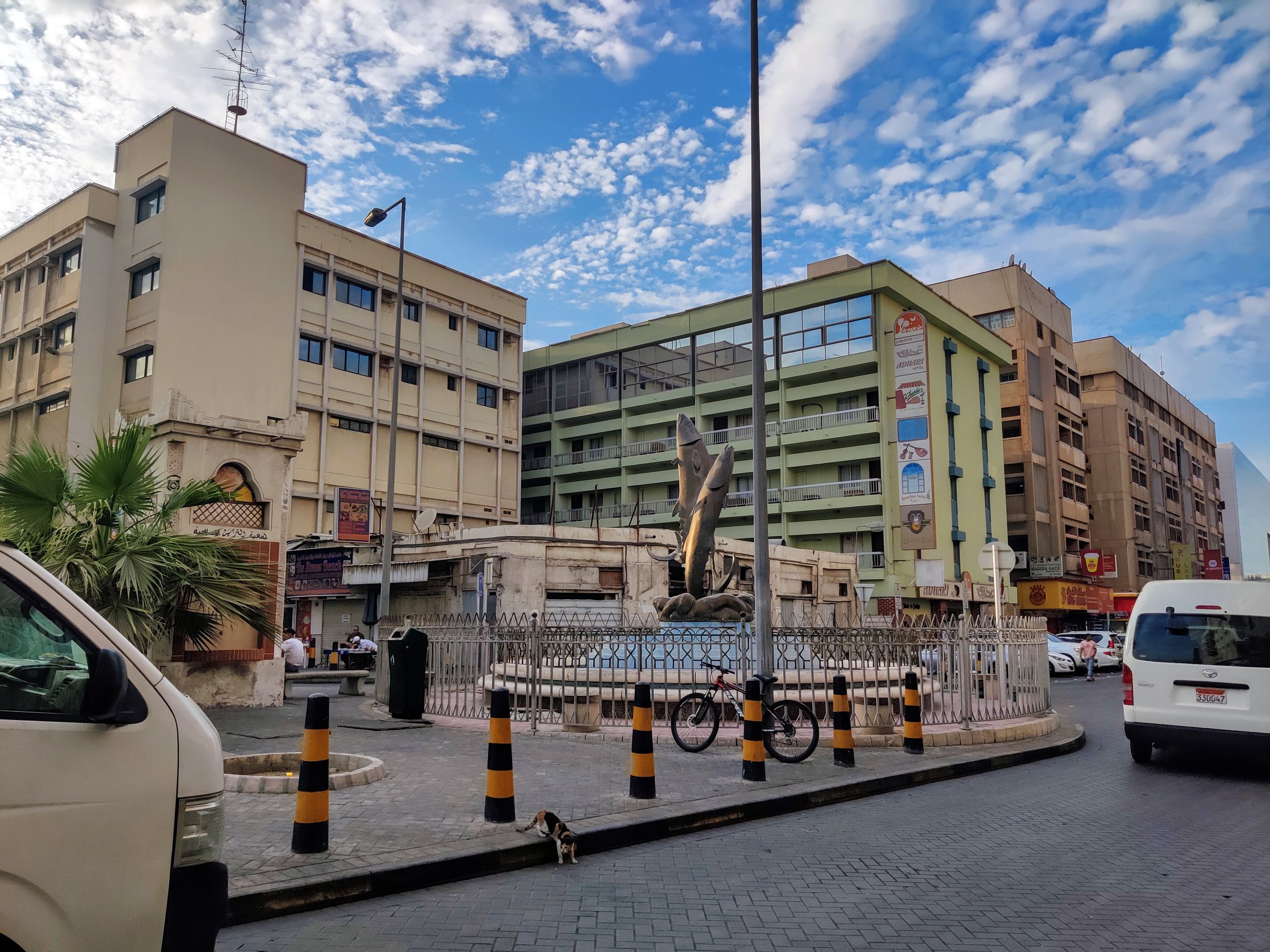

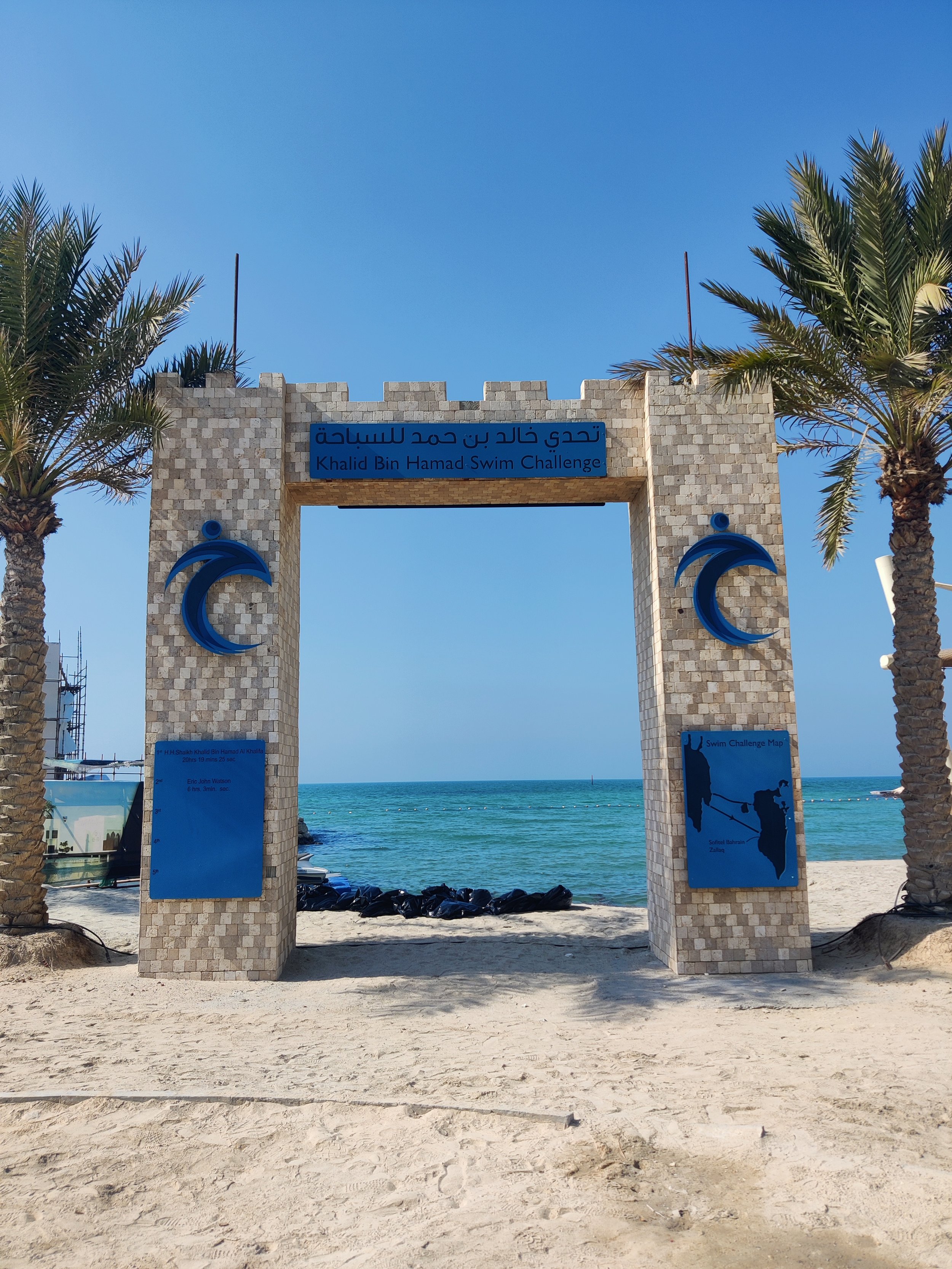
Bahrain is the third smallest country in Asia. It is roughly 4x the size of Washington DC, with the population equivalent to New Hampshire. Someone compared it to Saudi Arabia's Tijuana but that does it a grave injustice. The two states are connected by a 25km long bridge and Bahrain is visible from Saudi Arabia on a clear day. It certainly feels more rustic than where we live in UAE's capital but we mean that in a good way. Manama, its capital, has history and character.
As ever in the region, the tall minarets rising from mosques shape the built-landscape. They're punctuated by the few high rises that dot the horizon, giving a Dubai/Abu Dhabi vibe but toned down, the architecture showing a hint of tradition. Bahrainis are seafarers and there are nods to that history throughout the city: the port, sculpture, statues, and of course the endless things named “pearl” (lulua in Arabic).
Bahrain is an interesting place, this 21 Facts About Bahrain article taught us several things about the country before we arrived. Our first stop after check in was Nassef, a traditional Bahraini style restaurant in the heart of the Old Souk. Similar to the rest of the culinary delights in the region (hummus, fattoush salad), Bahraini dishes have a stronger Iranian and Iraqi influence manifested in prominent sweet and sour flavors.
We popped over for a weekend getaway with friends that included the Bahrain Jazz festival and a rather eventful brunch with live Latin music, a clown, a fight, and Mickey Mouse. The flight from AUH is under and hour and tickets to Manama float around 100 USD. We enjoyed our time, feel like we got a good sense of the city-state, and have some other sites we want to see next-go-round.
As Arnold said so eloquently, "I'll be back".
A Desert Dispatch: the Road to Abu Dhabi
Each pin is where one of my students calls “home”
Republished from “A Teacher’s Evolving Mind” posted Sept 28, 2019.
Each pin is where one of my students calls “home”
I was on a very crowded bus in rural Thailand transiting between Surin Beach and Ao Nang. It was July 2018. My wife Hope and I are travelers; we have made summer sojourns to 6 continents and over twenty countries throughout our teaching careers. That day, we were on a long, hot bus ride. We always pick cheap transit and sometimes we regret it. I was sweatily DM-ing my boys Zach Powers and Dave back home about NBA free-agency from the back row of the bus. At a stop along the road, a dozen Thai middle schoolers jumped on board. The young boys were wearing ties and blazers, the girls, dresses and their hijabs. From their uniforms, I assumed they were going to a British School. I turned to my wife and whispered, “Yo, I would teach the s**t out of them.” We both laughed.
About two weeks later we were in Kuala Lumpur, the bustling Malaysian Capital. On a crowded train heading back from a Buddhist shrine, I turned to Hope again and said, “I want to live here.” Something about it just felt right: safe, English-speaking, good infrastructure, real cultural diversity. Thus began our odyssey into the world of international teaching and our eventual arrival this summer in Abu Dhabi in the United Arab Emirates.
I’ve opined before about the liberating feeling I get from being abroad. Being black in America is often… complicated. When you get distance from home it brings these complications into sharp focus. Sometimes it’s jarring: In 2015, we taught in a summer program in China. We were watching CTV (Chinese State TV) with our host family and the evening news led off with the murder of Samuel DuBose, by a University of Cincinnati campus police officer. I was speechless. In 2017, after getting battered by a tropical storm and binge-watching Season 1 of Ozark in Mexico, we watched Charlottesville unfold and saw the nation collectively shrug-off the violent, Klan-fueled white supremacy on display. I was saddened. In 2018, while riding in a taxi to the Killing Fields Museum in Phnom Penh. I received a half-dozen texts from back home about my hometown newspaper; the editorial board published a piece equivocating between white supremacists the everyday community activists, like myself, that oppose them. I was enraged. Obviously, none of these are why we left the US, but being away from home gives you distance and a different perspective.
Fast forward to August 13th of this year. Hope and I boarded an Etihad flight bound for Abu Dhabi with a one-way ticket and basically a full-reboot of our careers in front of us. We’re are now immigrants (I prefer that term over ex-pats). I’m teaching AP US Government & Politics and Global Studies at the American Community School. My students, 60% of whom are US citizens, are fascinating. The range of skills in the room is comparable to my students, back home but the range of life experience is not. I have several students who identify with complicated hyphenated backgrounds that I’ve never encountered (or even contemplated) back home: Haitian-Sudanese, Palestinian-Jordanian-Canadian, Uzbek-Texan, Italian-Iranian-American, and because of the presence of the oil industry, there’s a surprising number of kids who call Alaska home.
There are some obvious differences. School starts at eight and I have longer classes because of our A/B schedule. I have a better sense of work-life balance. I am less tired at the end of the day and at the end of the week. I have more manageable class sizes, my largest classes are in the low 20s, and more time for planning helps me take less work home. My students have access to technology. They have access to delicious, nutritious food before school, during breaks, and at lunch. These seem like little things, but they make a world of difference for students. None of it is rocket science, every student in the US could have these things—we choose not to provide them.
The Dhabs at night, photo by Kevin Ponce Villaruz
My life feels less hectic now. We live in a high-rise in a dense urban village called Khalidaya. I can see the Corniche, the most famous beach in the Gulf, from our balcony. We’re surrounded by over a dozen restaurants and three grocery stores within a three-block radius. We walk to and from school each day, often passing and chatting with students. It’s an urban planner's dream.
This is our life for now and for at least the next twenty-two months, this will be our home.
Post-Script: If you’re a fan of the podcast the first #BowlingsAbroad episode of my Nerd Farmer show will be recorded this week. Keep an eye on your pod-catcher of choice.
Where All the Cute Kittens Go
Republished from “An Educated Guess” posted August 12, 2019
According to Garfield, “Abu Dhabi is where all the cute kittens go.” Although, I’m allergic to cats and Nate hates animals, we’ve decided to leap into the known, unknown.
We know that we while we are both thriving in our schools, at the top of our teaching games, and heavily embedded in our community, we need a change. We know that certainly the unsustainable conditions of public education and the impractical demands on public school teachers is oppressive. We know that the current political climate and the rise of white supremacy in our country takes a physical, emotional, and mental toll. We also know that we desperately love our Lincoln Community are trying hard to stuff down the feelings of grief and loss we feel with this move.
To be clear, we aren’t moving because teaching in America is “too hard” for us. We aren’t moving because we are unhappy with our district or our school. We aren’t leaving because we’re burned out. Nate explains this decision well in his post “Our Departure & A New Chapter” and I’ve shared some of my reasons in this interview.
Teaching overseas was always on the docket for me. I chose this profession for its versatility, its predictable unpredictability and its consistent ability to make me change. Every year, I challenge myself to embrace some new adventure--a leadership role, a new course to teach, new instructional practices. Teaching abroad is a way for Nate and I to merge two loves--teaching and travel.
So last summer, while traveling through Southeast Asia, we decided to throw our apps into the ring for the 2019 school year. Teacher Tinder, I mean Search Associates, worked better than imagined and after numerous Skype interviews we accepted positions at the American Community School of Abu Dhabi. It is the oldest international school in the city. Our course assignments are basically what we teach here. Nate will launch AP Government & Politics and teach Global Studies. I will launch AP Literature, teach senior IB Literature, and Sophomore English. Our students are from over 60 different countries and yes, everyone speaks English!
Fun facts:
25% of our school is Canadian
80% of the UAE is from somewhere else (over 200 different nationalities!)
Abu Dhabi hosts both Louvre and Guggenheim museums
From a shipping stipend to a partially furnished 39th floor two-bedroom apartment in a multi-purpose building in the heart of Abu Dhabi, we're well taken care of. My plan to wean myself off my Starbucks addiction went straight out the window! ☕ More importantly our new school champions values that align with our personal and professional pedagogies. For my teaching nerds, the school prioritizes job-embedded professional learning and weekly time allotted to meeting with grade level teams. With a multicultural student body, we have no choice but to be culturally responsive in the what and how we teach. I’m eager to see how my background working with ELL students comes into play in this new context.
Are we nervous, scared, or anxious?
Sure. The Nate and Hope farewell tour was more difficult than we envisioned. It’s hard to say goodbye to close friends. It's especially heart wrenching to say goodbye to 92 year old grandparents and aging parents. 😭
We deeply appreciate everyone who met us for breakfast, brunch, lunch, dinner, coffee, drinks, soccer matches and church! A special thanks to those of you who helped us finally use the gift cards we found while packing our house.
One thing I've learned from my mentors and experience is that there isn't a perfect time for anything. The kids will be too young or too old. It will always be expensive to buy plane tickets. There will always be a reason not to leave that job, that neighborhood, or that relationship. So, you can't wait for the "perfect" time. It doesn't exist.
This is where we enter the unknown.
What about your house? Your cars? Your furniture? Will you ever come back? 😬
One of the ways we know this leap comes at the right time is the way it's unfolded.Throughout the laborious visa application process, I met kind, helpful, and compassionate people who answered my questions, rush mailed documents and even offered to pray for our move! Btw, most people pay an agency to do this. I refused to shell out 💰 so I did it myself. Yay me. In April, shortly after we announced our departure, a colleague from my days in Clover Park SD committed to renting our house indefinitely. In the last month, over 25 different neighbors (shout out Buy-Nothing community) picked up household items and furniture from our porch. In the last two weeks, my mom fielded a jillion phone calls asking for advice on what to pack, what to get rid of and whether or not moving is the right decision. My dad piled his truck high with boxes, mattresses, and whatnot. Last week, a friend posted she needed a car--she now drives my Kia Rondo. Other friends are storing Nate’s Kia Soul in their garage so we have transportation when we visit. This week, many of you opened your trash cans and recycling bins for our garbage needs. Yesterday my neighbor, Sarah, graciously laughed every time I pounded on her door with an armload of produce or toiletries. We cannot express our gratitude enough for everyone who supported this process.
As far as returning is concerned, our teaching contract is a two year commitment. Staying longer depends on how well we both adjust and contribute to a new school, how our parents are doing without us, and who is elected president in 2020.
Are you allowed to drive there? Do you have to wear a head-covering? How can you go to a place that _______ ?
First of all, I’m not nervous about adjusting to cultural differences. Having spent the first 17 years of my life overseas (Philippines, China, Hong Kong, and Albania), I’m used to the exhilaration and fatigue of adjusting to a new environment. I know what it's like to not speak the dominant language and to be the only white person in the room.
Second, I want to challenge my readers to remember that #notallcountries are the same. The United Arab Emirates is quite different from its neighbors like Saudi Arabia (who now allow women to drive). There are no requirements for ex-pat women to wear head coverings (except in mosques). I find it telling that many a white woman has asked us about the rights, roles, and treatment of women in the region. While I appreciate the allyship and sentimen, I’m struck by the Orientalism that underlies these questions not to mention the fact that travelling as an interracial couple is far more significant than whether or not I need to wear a hijab.
Lastly, before we go pointing fingers at someone else’s home, we need to examine our own. “Black men and boys still face the highest risk of being killed by police”. We put kids in cages and mass shootings are a rising epidemic. For those that know us, we have no problem commenting and critiquing American society. As James Baldwin puts it "I love America more than any other country in this world, and, exactly for this reason, I insist on the right to criticize her perpetually." We want the United States to live up to all it's possibilities. Nate and I will continue podcasting and writing from afar.
All that to say, we're excited about the new adventure and what lies ahead. I'm addition to teaching duties, Nate’s planning to join Kite Club and I’m looking forward to taking falconry lessons at Abu Dhabi Falconers Club.🦅
And no...we will not be getting a cat any time soon. No matter how cute it is. 🐈
